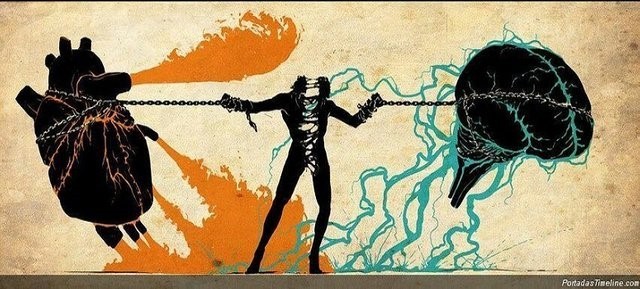It seems so clear to me that living in rational way would benefit us way more.
Thank you, Ayli Inrovdop, for this long-standing question.
Your question already seems to imply a hypothesis that has had a long history in philosophy and continues to have a certain influence in everyday discourse, namely, the opposition between reason and emotion. In this respect, we can mention famous philosophers whose ideas emphasized the power of reason, such as Plato and the tripartite division of the human soul in The Republic, the desire to control the passions on the part of the Stoics, and Cartesian rationalism. On the other hand, some thinkers have highlighted the role and strength of feeling over thought. It is enough to quote Rousseau, the whole romantic and decadent movement, and the so-called irrationalism of the beginning of the 20th century.
It seems to me that both positions are now largely discredited and that there is a growing recognition of the reciprocal links between emotions and reason. Consider some examples.
First, emotions give us information about the world around us. Imagine you’re afraid of a lion standing in front of you: your fear reflects the real danger the animal poses to you (and your survival). Basic emotions, such as fear, have a biological root in the evolution of the human species. But emotions can be more complex. Imagine that you must take an exam and you feel stressed, anxious, have palpitations, sweating, etc. These physiological reactions that come with your emotional state suggest both the value of the event (if the exam didn’t matter, you wouldn’t feel this way), and reveal things about yourself (the exam is important for what it means to you, to your future, to your life). Emotions, therefore, constitute privileged epistemic access to certain phenomena and offer us a glimpse of the surrounding world and ourselves. The link between emotions and knowledge is also suggested by certain linguistic practices. Indeed, we tend to stain phobias with irrationality. The fact that the fear of a harmless small dog is irrational seems to suggest that there may be other emotions that are rational and appropriate (e.g. fear of the lion).
Another concept in vogue today that reveals the importance of emotions is that of emotional intelligence; it reflects the importance of emotions in community living and decision making. For instance, one of the main interpretations of the Iowa Gambling Task – the psychological study of A. Damasio’s team – is that perfectly rational individuals with deficits in emotional-processing have a certain “myopia” for the future, meaning that they tend to focus more on the immediate outcome of decisions, with apparent indifference to the long-term consequences of their actions; and they have difficulties in learning from past mistakes. Psychopathic behaviour also seems to derive more from an emotional deficit than a rational disorder. Thus, emotions are useful not only for winning at poker but also for community life and good decisions.
Emotion and reason – sometimes enemies, sometimes allies – have complementary and interlaced roles; they both provide us with information and guide our behaviour. To exclude emotions from our lives would lead us to lose something essential and meaningful.
What do you think? Are reason and emotion at odds with one another? Let us know in the comments.
And, as always, if you have a question for the Armchair Philosophers, don’t hesitate to get in touch. You could send us a message or fill in this form.
If you like what we do, you can support us by buying us a coffee!
Image: (credit)
I studied in Geneva and Paris (University of Geneva and École Normale Supérieure) and I specialized in the philosophy of emotions, especially in the relationship between affective states and memory. My master's thesis dealt with nostalgia and represented an attempt to establish a general philosophical theory of this rich and complex emotion. Other areas of interest include moral emotions, metaethics and metaphysics, with a penchant for fictionality. I do not have any specific philosophical arguments in mind; however, I find that the works of Russell, Popper and Kripke are a must-read.


Immediately after reading this piece, I read this excellent example: ‘…special forces training instilled samurai levels of mental composure. “Emotional intelligence was a key component of working with an elite military unit, but that was because we had to control our feelings. Aggression had to be turned on and off like a TV set. Hotheads were no good in battle when a moment of crushed pride might result in the whole team getting killed.”